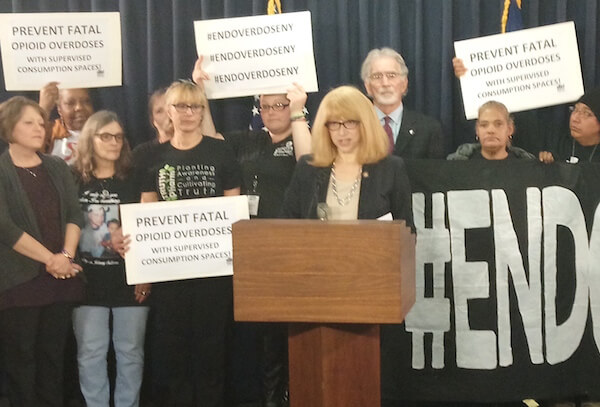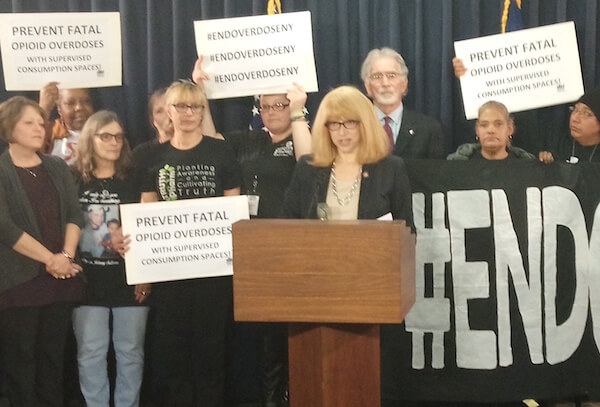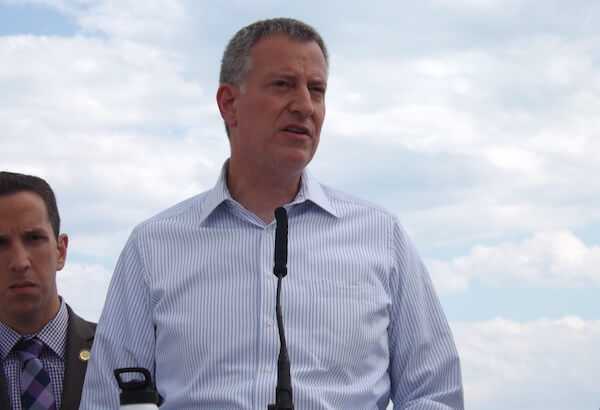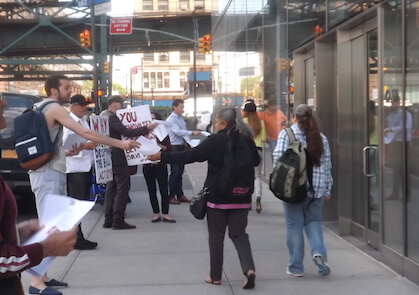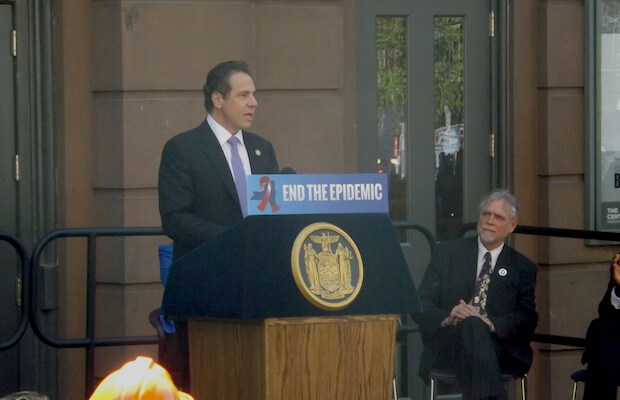Assemblymember Linda Rosenthal is moving to block insurance companies from denying coverage to people using PrEP. | MELISSA MOORE/ END OVERDOSE NY
Upper West Side Assemblymember Linda Rosenthal has introduced legislation to bar insurance companies from discriminating against people who take the anti-HIV treatment intended to prevent infection known as Pre-Exposure Prophylaxis, or PrEP.
Its introduction was a major step forward in preventing the spread of the AIDS virus. Known by the brand name Truvada, this drug cocktail, if taken correctly, is highly effective in preventing infection, providing what many view as bullet-proof protection against the virus.
“Several studies have shown that users who take the drug daily are at nearly zero risk of HIV infection,” Donald G. McNeill, Jr., the top medical reporter at the New York Times, wrote in February.
Penalizing those taking precautions outrages Upper West Side assemblymember
McNeill’s story created considerable buzz when he reported that some insurance companies — primarily those providing life, disability, and long-term care policies, rather than health insurance itself — were denying coverage to persons who were taking the pills. One tart-tongued researcher voicing amazement about this said such coverage denials “really are silly — it’s like refusing to insure someone because they use seatbelts.”
Rosenthal, who is the chair of the Committee on Alcoholism and Drug Abuse, argues insurance companies following this practice will have a pernicious impact by discouraging the use of PrEP. The companies, she said, “are trying to deny coverage to good risks, people who are taking every precaution to prevent themselves from getting sick with HIV.”
PrEP isn’t popular with fundamentalists and others looking to compel gay men to change their behavior, rather than pursue sex with prudent precautions. Just as the birth control pill lowered the risk of unwanted pregnancies for heterosexuals, PrEP is a medical advance that stops HIV infection even when condoms aren’t used.
Even at the height of the AIDS crisis, there were always some men who didn’t use condoms and in time clinicians began to experiment with giving healthy men anti-HIV drugs, hence the name pre-exposure prophylaxis. After years of fine-tuning and conducting efficacy tests, PrEP works like a vaccine. Daily users don’t get HIV infections, but they are vulnerable to sexually transmitted diseases if they abandon condoms.
Some gay men use PrEP and condoms to feel completely safe in their sexual encounters, while others are willing to assume the risk of STD infections as long as they are comfortable that they won’t become infected with HIV.
Significantly, PrEP plays a critical role in the New York State plan to end HIV as an epidemic by 2020. Public health officials exult in being able to offer people at the highest risk of getting infected with HIV a medicine that prevents transmissions. Data from the city health department show a trend of declining new infections, but a step-up in PrEP use will be needed to reach the state and city’s ambitious goal over the next three years.
McNeill’s reporting on insurance companies balking at PrEP use has state regulators investigating insurance companies for engaging in illegal discrimination based on sexual orientation.
Rosenthal’s bill would flat out prohibit insurance companies from denying coverage, she said in an email to Gay City News.
“Insurance companies manufacture myriad reasons to deny coverage,” she wrote. “These coverage decisions are based on tired old tropes from the ‘80s about gay people and HIV that not only reinforce stigmas we worked for years to reverse but also the discourage the use of life-saving drugs.”

